Best Hybrid Cloud Providers: A Complete Guide
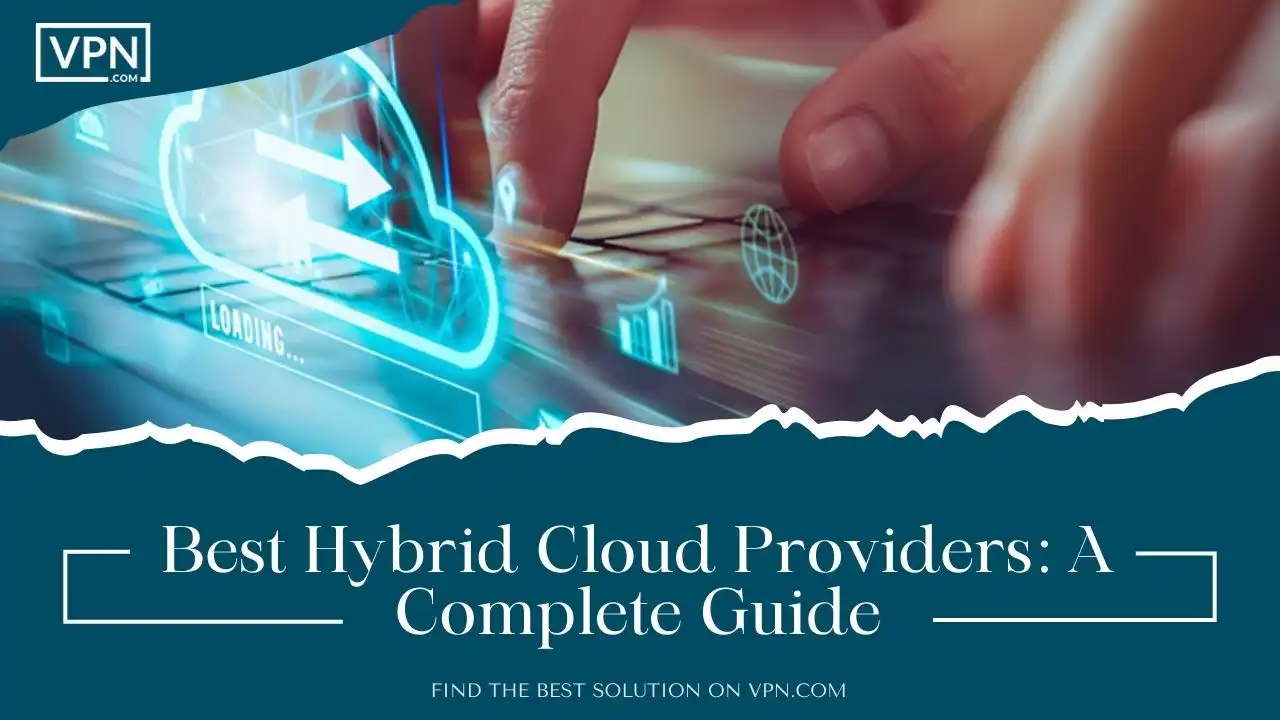
There are many businesses out there who are looking to get maximum benefits by having the perfect hybrid cloud architecture. They offer better access to the remote workers by offering them affordable operating costs. Hybrid Cloud Computing is there to help you make your business safer, effective and collaborative.
Did you know that the Global Hybrid Cloud Market increased from $44.6 billion in 2018 to $97.6 billion in 2023, according to the MarketsandMarkets report. It means that companies out there are changing to cloud based infrastructure. They optimize the business operations. What does it mean? It means that your work efficiency will be enhanced. Isn’t that what you really want?
We think that moving to the cloud is a wise decision that any person can make. It becomes a better decision when you are living in 2023. However, if you don’t know which hybrid cloud provider to choose then we will give you some of the options to choose from. Because we understand that finding the right one can be hectic and frustrating. So, let’s see what options we have in the market. Keep reading if you don’t want to miss out on important facts.
What Is a Hybrid Cloud?
Before getting a Hybrid Cloud Computing we think that it is important to understand what you are really buying? It is basically a cloud computing environment that will use a combination of third party, on premises and private cloud with coordination between these platforms.
Hybrid clouds usually have a connection from an on premises data center to a public cloud. These connections typically might have other private assets which contain edge devices and other cloud service; like storage.
Hybrid Cloud Computing also reflects the idea that IT resources and those services are not just a single but rather a complex combination of hardware, applications, resources and services. Many providers can operate these various assets and then deliver it to an enterprise. They do it on the demand from countless global locations.

Sign Up with our #1 Host
- 24/7/365 Support
- 100% Uptime SLA
- 59-Second Support SLA
- Highly-Trained Technicians
- 25% Off Dedicated Servers
How Does Hybrid Cloud Work?
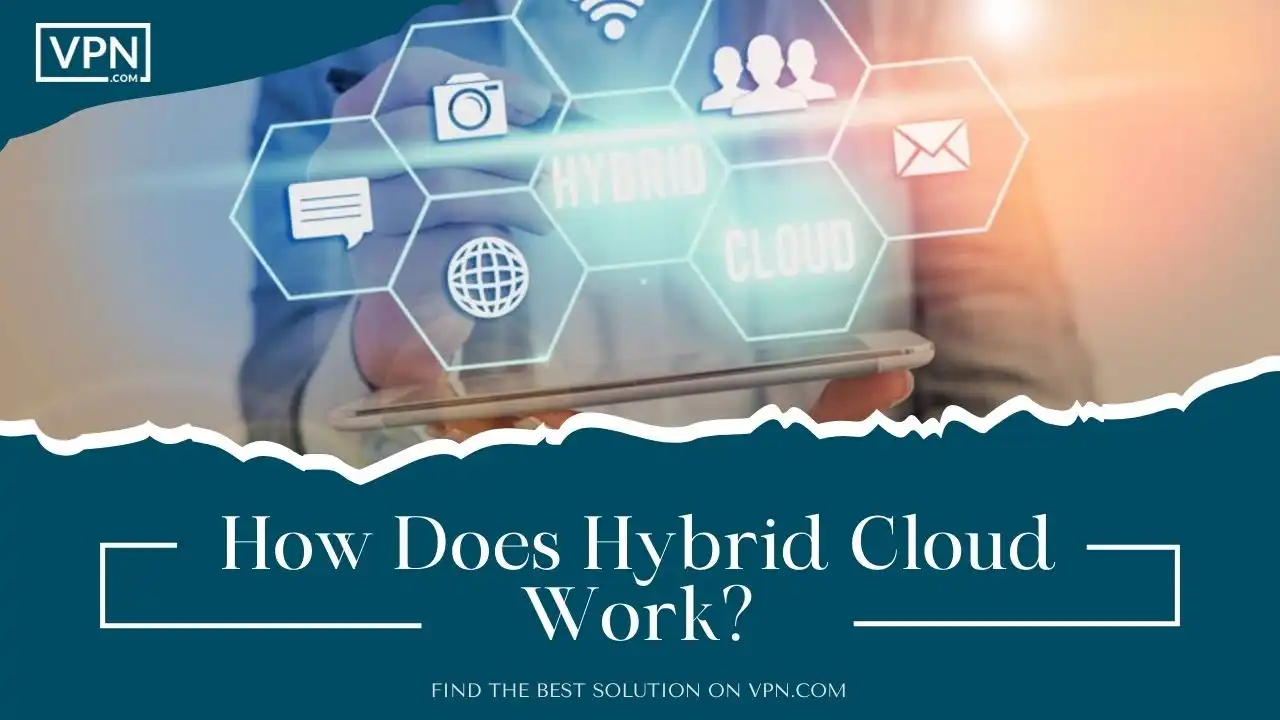
When a company will set up a mix of its computer stuff then it is called a hybrid cloud. They can put some things in their own private computer space or in public clouds like IaaS, PaaS and SaaS.
It will let them move things around easily by giving them more choices for where to place their data. A hybrid cloud is basically a setup that includes all the technical parts of an application. It might include network, hosting and web services. For instance you can say that in a regular hybrid cloud situation, they might contain a:
Local
In this way some applications will run in their regular computer center. They are really important ones because here rules or business needs to have control over anything directly.
Cloud
Other applications and data are placed in a specific part of the public provider’s space. These are typically very less important or they are used very less. They might be there just for a short time. Businesses control and interact with these public clouds through the cloud providers website or tools. Nowadays, there are various companies who are using more than one public cloud to get the best of each one’s unique offerings.
PaaS and SaaS
There are some applications and data that are hosted by PaaS and SaaS companies. They are usually those things that a business needs but they don’t want to deal with in-house. Common examples of those are HR, accounting, finance, business intelligence and software tools for development.
All these pieces will create a complicated web of tasks and data that companies usually find increasingly challenging to manage cost effectively.
We know that people sometimes use the terms interchangeably but there are differences between hybrid and multi cloud models. A hybrid cloud will bring together everything in one place just like a mix of private stuff from AWS, Microsoft, and Google, and services from PaaS and Saas providers.
On the other hand, a multi-cloud means that using two or more public cloud providers without needing a private or on site part. For instance, a company might use AWS for some things and Azure for others. It will make it a multi cloud setup.
What Are Benefits Of Using Hybrid Cloud?
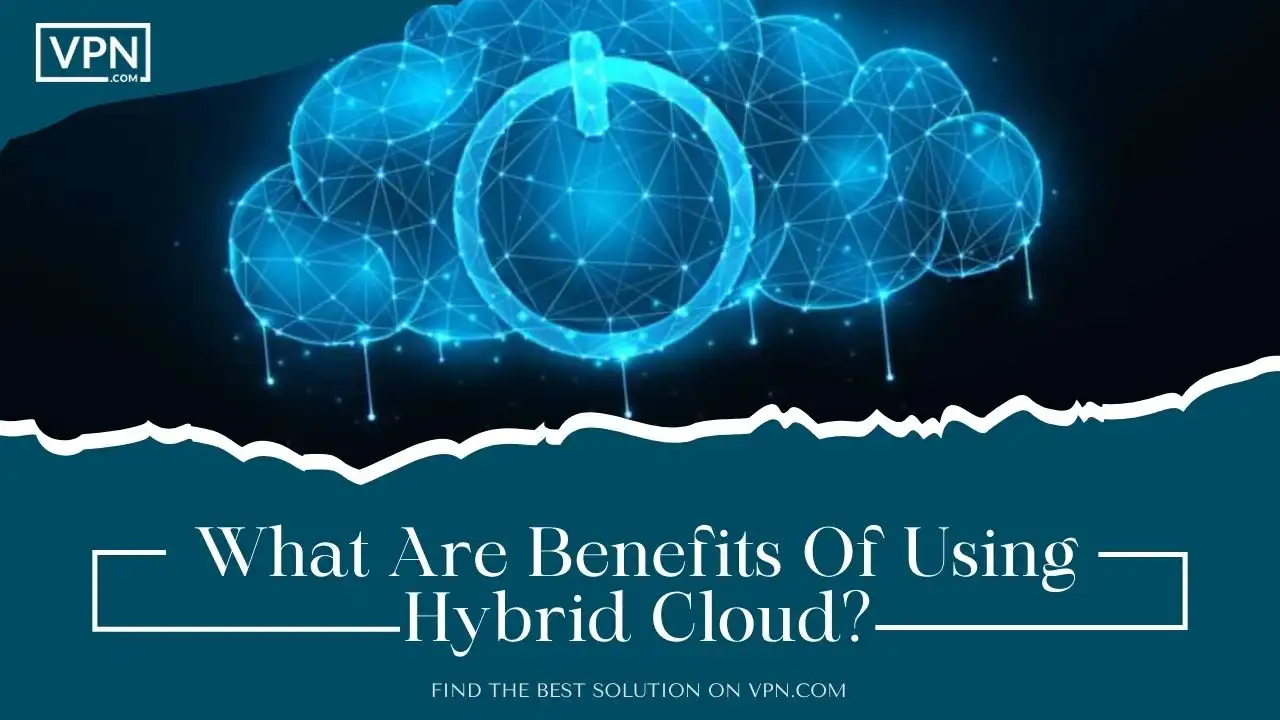
When we are talking about computer issues or solutions then we think that hybrid cloud is like having a mixture of on-site and online setups. You can keep your important work things on your own system like connecting to other services.
You can also stash your less important work on someone else’s online space. It is basically like getting the best of both the worlds; private and public internet cloud. Here is why having this mix is a good idea:
Flexibility
You get to switch between your usual setup and the online world without being stuck with just one option. Isn’t that great? It means that you can easily move your work stuff around whenever you feel like.
Saving Money
We know that running your own data center can cost you a lot with fixed expenses. However, on the other hand using someone else’s online resources is more flexible we think and you also save a lot of your money. You just have to choose where to run your work based on what is secure, reliable and cost effective.
Easy and Expandable
This mix will give you more choices for the resources through online providers. It will make it simpler to set up, roll out and grow your resources when you need more. It means that if your own system can’t handle the load then you can smoothly shift some tasks to the online space for extra help.
Strong And Work Together
Do you know that your tasks can run in both your private setup and the online space. It means that different parts of a task can also work in both places and share the same data resource.
Following Rules
Some Industries have rules on where your data should be kept. Hybrid cloud will let you keep your data private while doing your tasks online. You can also do your work at your place and easily move your data to and from the online space as needed.
This way, you will follow the rules and still use the advantages of the online world. Other benefits of using a hybrid cloud includes keeping things consistent and then making it easier to manage IR practices.
What Are The Best Hybrid Cloud Providers?
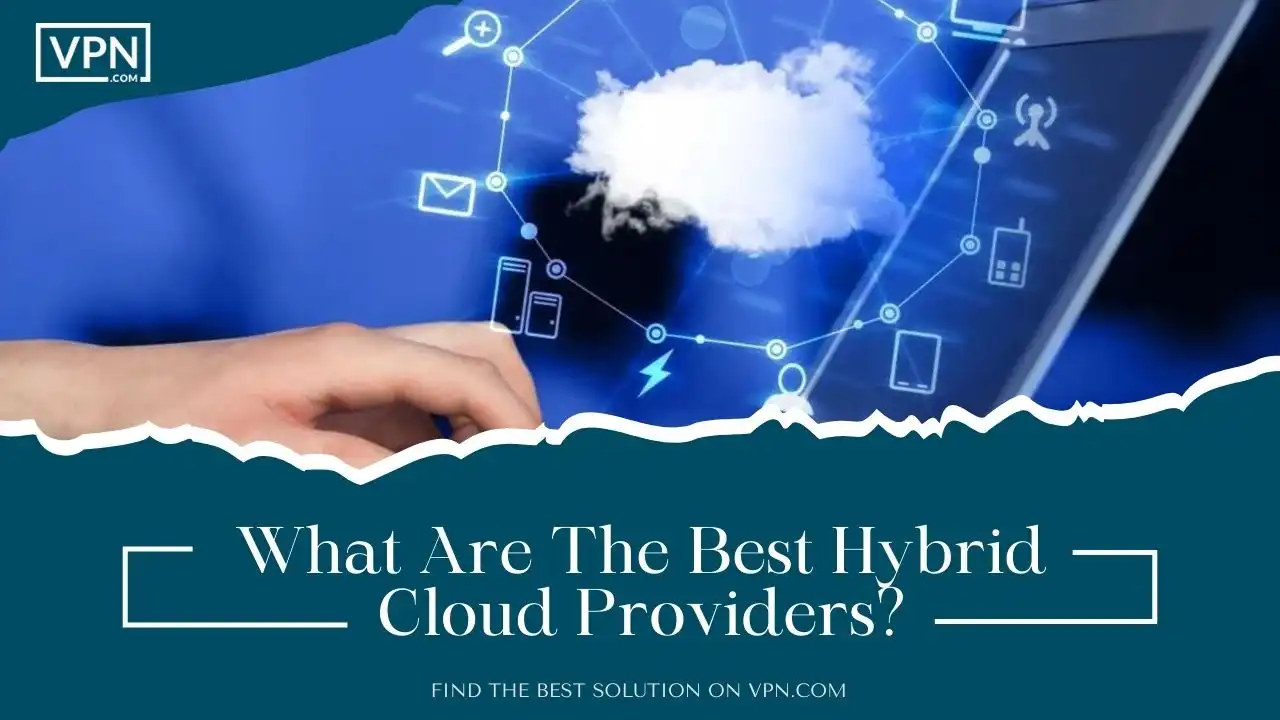
We know that finding the right hybrid cloud provider is never an easy task. You have to be patient and the process can take a lot of time. The right hybrid cloud provider will give you ease of mind and the wrong one can take that away.
So, we did research on our own and found the best ones for you, so that you don’t have to waste your own time. Because we have the best hybrid cloud providers and Solution right here:
Microsoft Azure
Microsoft Azure is basically the expert when it comes to the Hybrid Cloud world. They provide the best services that you can’t get anywhere else. It is basically your go to platform for handling, securing and keeping eye on the server. You will also get Kubernetes clusters and apps across different spots; let it be the edge, various clouds or your own technology world.
Why do we choose Microsoft Azure? According to our research, Microsoft Azure will leave everyone behind when it comes to juggling the hybrid and multi-cloud act; even if you are not all in one on the Azure scene. Microsoft also gets to boss around our virtual machines, databases, and Kubernetes clusters like an expert. They do it all in the Azure style. It will make setting up rules and setting much easier for all the technology hideouts.
The best player for us is the Azure VMware Solution. It will let us shift our workload from VMware to Azure and still play around with them while using the tools that we use.
However, do you know what is the best part of using them? Using Azure will open up doors for you to a bunch of other Microsoft features like Azure Stack, Visual Studio, Azure DevOps, Azure VMare Solution, Microsoft, Sentinel, and Azure AD. They will also click smoothly with the Logic Apps for crafting workflows and managing business moves and Event Grid for linking Azure with other outside services.
You might be wondering about their cost right? Well only they can tell you the details because they cater to their users among their demands. Wondering if they offer a free version. And the answer is yes they do.
Amazon Web Services
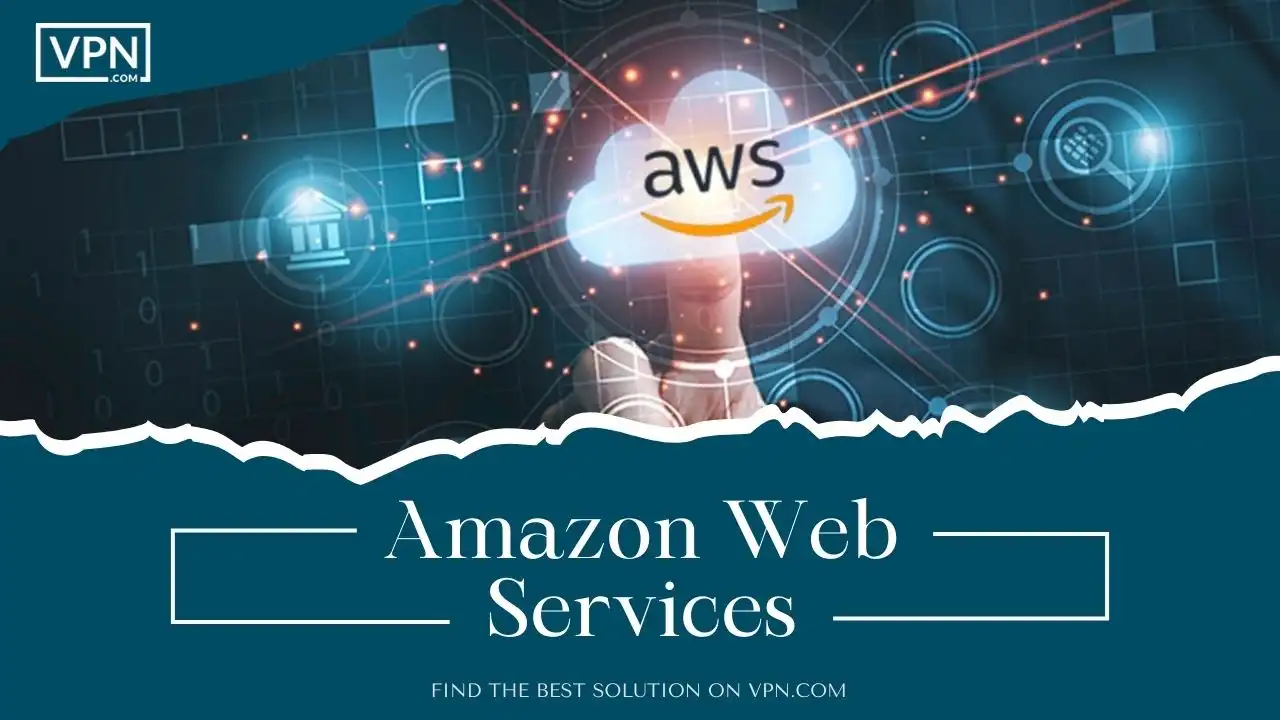
When we hear about AWS we usually hear about AWS Outposts too. But what are those in the Hybrid World? AWS Outposts are like the technology expert tool that will let you bring a piece of Amazon Web Services (AWS) magic right to your doorstep or wherever you need it.
You can imagine it as a super smart device that will extend AWS services and enhance it from almost anywhere; even from your local spot or the edge of things. Once you set it up then you can run AWS services right there by using your local computer power and storage for speedy results and keeping data in check.
You might be thinking why Amazon Web Services is on our list, Right? We found out that AWS outposts to be the perfect fix for businesses. As they are not totally into the whole cloud vibe. It means that instead of getting into cloud life we just tapped into all AWS tools like EC2 instances and ECS Clusters. It was like having the best of both worlds; they are quick, reliable local technology and a smooth connection between the cloud and our device.
You might be wondering what AWS has to offer us. The best part of them is that they offer two types; rack and server. The rack will give us access to every AWS region service; from computing to databases and analytics, networking, and storage. But the server which is quite handy will not offer us any AWS storage or database or analytics features. It means that rack wins the game here.
They can also coordinate with your on premises setup that will sync up smoothly with the AWS region. But when it comes to other cloud servers then you should keep it to your own AWS crew. How much does it cost? You will know when you’ll ask them. Because they will cater to your needs. But sadly; no free trial version is available.
Google Anthos
When we talk about Google Anthos then you should know that they are very handy tools that are good at handling your work in the world of technology. They run on Google Kubernetes Engine (GKE) which is like a smart system that will help you with managing applications that are neatly packed in the containers. Google Anthos will let you set up applications in a mix of different places. It is like your own space and various cloud spots.
Why do we suggest Cloud Anthos? We chose Google Anthos because it combines up so well with the Google Cloud. When we wanted to move our computers’ workloads to the Google cloud then we just turned them into containers and then sent them off to a Kubernetes pod. We think of it like a group of containers that share the same computer resources.
The best part of using Google Anthos is their Anthos Configuration Management. It is just like having a security guard that will make sure that everything follows the rules, security, usage, and configuration policies everywhere. These policies usually work like a roadblock that makes sure that nothing will go off the track with Kubernetes API.
If you want then you can also try to team up with some other big cloud providers like AWS and Microsoft Azure since Anthos plays really well with them. With the Google Anthos Multi-Cloud API, you can easily handle GKE clusters on Google Cloud and other cloud people; all from the Google Cloud Control Center.
You might be thinking about how much it costs. It starts from $6 for every virtual CPU every month. You should also try it before buying it. How? They give you a 90-day trial to see if it works right and see if it is really your thing.
IBM Cloud
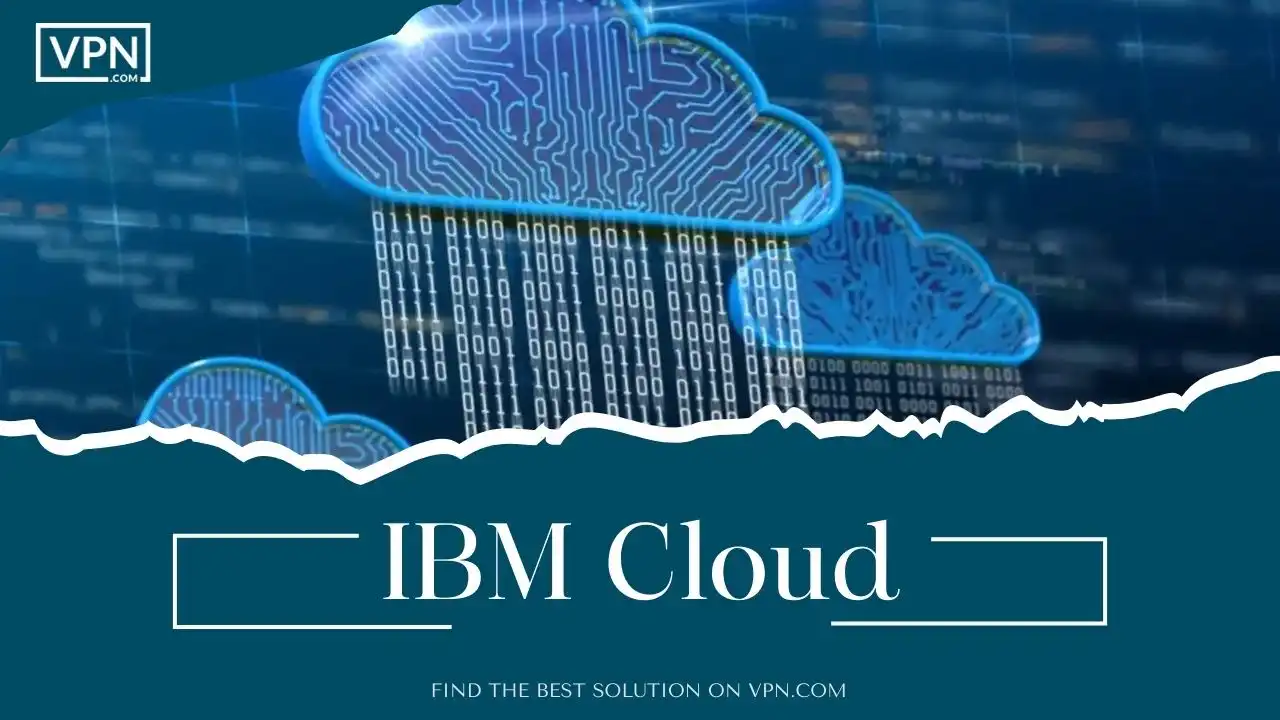
Ever heard about IBM Cloud? They are like the bundle of technology services that all hangs out in the cloud. They come with a cool hybrid cloud management service. It is all powered up by the IBM Consulting Cloud Accelerator platform. This combo will let businesses smoothly move to the cloud, enhance their applications and roll them out in different places.
Why do we think that the IBM Cloud is a good idea? Because we are amazed by how IBM tackles the whole moving and upgrading apps thing. They use something which we call the IBM Garage Methodology. It is like a guide to figure out what bugs customers and then turns those insights into much better business stuff. It made it super easy for us to give our apps a little bit of enhancement that matched what users were really in need of.
The best part of using IBM Cloud is how they bring in AI to do things automatically at the back end. It uses 5G to bring cloud resources and storage close to where the data will hang out. They will make it show insights and responses way quicker. Worried about security? Their security is solid; especially with IBM Cloud App ID. We got to lock down our hybrid apps with a Multi-Factor Authentication and Single Sign-On.
When it comes to collaborating with other clouds they won’t step back. They have good connections with Azure, AWS and Google Cloud. And if you want to add even more apps and data then there is IBM App Connect for that.
You might be thinking how much they cost. Well they will tell upon your asking because it depends on your needs that what you are really looking for. They also give you a free plan to test it out. It means that you have a chance to see whether you are getting the right Hybrid Hosting Provider or not.
SolarWinds Hybrid Cloud
When it comes to top Hybrid cloud Providers then you might have heard the name SolarWinds Hybrid Cloud. They offer a SolarWinds Hybrid Cloud Observability which is literally like having your personal experts that will keep an eye on your hybrid cloud setup. We are not talking just about monitoring.
It is also about optimizing. Imagine that you have this one stop dashboard where you can smoothly check how your cloud apps are doing; right alongside your regular on premises system. It is also like a guarantee for your amazing performance and minimal downtime in your hard time.
You might be wondering why we went for SolarWinds Hybrid Cloud Observability. Because this tool literally amazed us in so many ways. Their virtualization summary is crystal clear and super easy to use. They will also provide you with all the important health and performance details. Plus, the fact that we can deploy it practically anywhere; be it physical or virtual hosts. They made it much easier to keep tabs on my AWS, Azure, and GCP (Google Cloud Platform) setups.
So, what are the features of SolarWinds Hybrid cloud that made us choose it? Well the features that caught our eyes were features like Intelligent Maps. It whips up maps on its own to spot any issue and build connections so you can see the big pictures of the dependencies. And let us not forget about Network Path Analysis. It is a lifesaver for generating speedy routes to crucial apps and services. It makes it an expert in catching network glitches.
It is also like a reunion with other SolarWinds tools; like Network Configuration Manager, IP Address Manager, and Netflow Traffic Analyzer. And if you are into monitoring your VMware then SolarWinds Virtualization Manager is the way to go.
Wondering how much it costs? Well it is priced per node each month. However, if you want to do a trial before actually testing it then you have the choice to do so. There is a 30 day free trial that is waiting for you.
AliBaba Cloud Hybrid Cloud
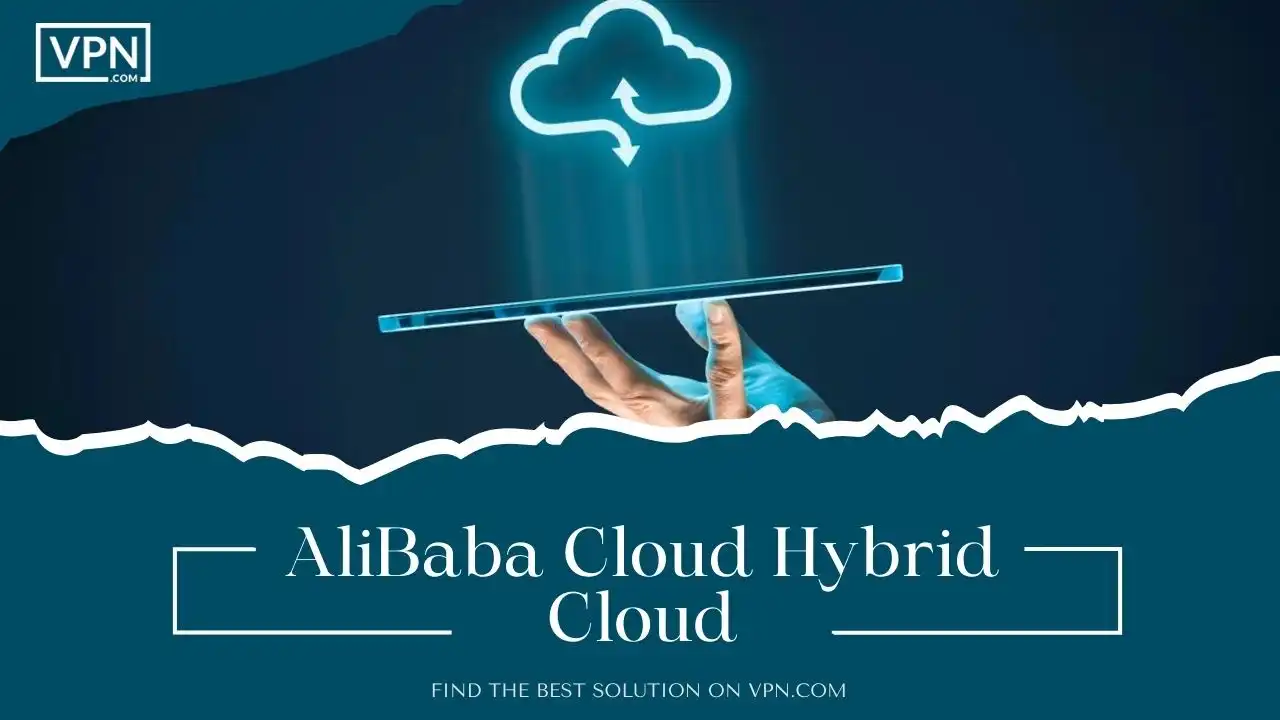
Alibaba Cloud Hybrid Cloud is like the best solution in the Hybrid world. It lets businesses easily adjust their size and services. It has got a bunch of cool features, like more than 50 different products you can mix and match and a whopping 10,000 servers in each region. So, if a company needs to grow or shrink or add or remove services then we think that it is a great start.
Why do we like Alibaba Cloud Hybrid Cloud? The best part is how it can work with over 50 Alibaba products at once. One we recommend is Hybrid Backup Recovery (HBR), which can do automatic backups and recovery stuff for all Alibaba Elastic Compute Service (ECS) instances.
There are a bunch of great things about it. For keeping things safe and following the rules, we used L2 VLAN/VSLAN isolation, which is like making sure different groups of users don’t mess with each other on the network. And to bring together all our Alibaba cloud services; we connected them into ZStack.
Alibaba Cloud Hybrid Cloud has 50 built-in connections that come with the plan and you can add up to 10,000 servers in just one region. Wondering about their pricing? Well, you will have to ask for the cost. However, they also offer a free trial.
VMware Hybrid Cloud
VMware Hybrid Cloud Provider is like a set of tools which is made to assist businesses in creating, deploying, and moving both new and existing applications using VMs and containers to hybrid cloud setups. VMware, a notable Hybrid Cloud Provider, also works together with partners like IBM Cloud, Oracle, Google Cloud, and Microsoft Azure.
You must be wondering why we chose VMware Hybrid Cloud Provider, right? The reason we went for VMware Hybrid Cloud is because it has really good partnerships. When you shift your VMware work from your own place to a partner’s cloud service then you still get to use all the regular VMware tools and features. This makes moving to the cloud easier and less stressful.
What we found great about VMware Hybrid Cloud Provider is VMware Aria, a platform that will bring together hybrid cloud stuff for managing risks, controlling spending, and optimizing performance. It helped us keep an eye on how much we were spending on different cloud services and find ways to save money. It easily connects with major cloud providers like Google Cloud, Microsoft Azure, IBM Cloud, Oracle, and AWS.
However, if you are worried about the pricing, then you will need to ask about the cost. They will assist you according to your own needs. However, if you still are not sure if you want to buy it then you can try its 60-day trial.
Nutanix Cloud Manager
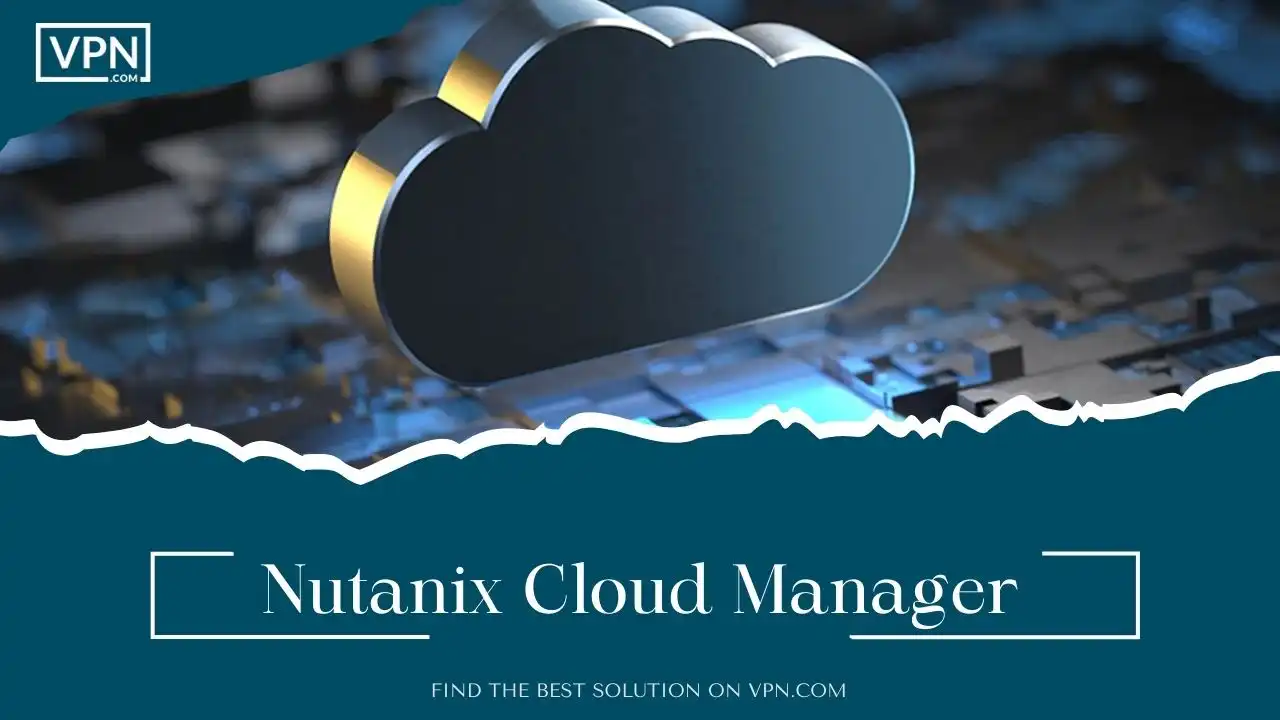
Nutanix Cloud Manager, a leading Hybrid Cloud Provider, is a specialist in handling complicated hybrid cloud setups which bring together smart operations, self-service, and overseeing costs and security all in one easy to use platform.
Why did we go with Nutanix Cloud Manager, a Hybrid Cloud Provider? Because managing costs in a hybrid cloud can get out of control and that is why Nutanix Cloud Manager caught my attention. With NCM Cost Governance, we could keep tabs on spending in our private cloud, including IT admin costs. It also lets us set budget alerts and automatically shift resources around, saving us both time and money.
What really makes Nutanix Cloud Manager, a premier Hybrid Cloud Provider, stand out; in our view, is the NCM Intelligent Operations service. Using clever machine learning, it predicts how capacity needs will change and offers suggestions for optimizing resources. The best part? You don’t need to know how to code to use it.
It integrates smoothly with over 700 tech partners, making it easy to run the Nutanix Cloud Platform directly through pre-built connections on Microsoft Azure, AWS, Google Cloud, and Red Hat. Well for pricing you have to contact the company yourself. However, they also provide a 90-day free trial upon request.

Sign Up with our #1 Host
- 24/7/365 Support
- 100% Uptime SLA
- 59-Second Support SLA
- Highly-Trained Technicians
- 25% Off Dedicated Servers
Conclusion
We know that finding the right Hybrid Cloud Provider can be very tough nowadays, Because the wrong one can cost you so much money and time. So, to save you from this we are here with a guide. It contains all the necessary information that you need for a Hybrid Cloud.
We, upon request, have also researched some of the best Hybrid Cloud Provider and Solutions; so you don’t have to waste your time searching for the right one. We hope that we have cleared all your confusion. But if you still have any then feel free to ask us.
Customer Reviews for Liquid Web

Amazing Customer Service
April, 25 2023

Liquid Web Support is simply awesome
April, 26 2023

Support is everything
March, 3 2023




